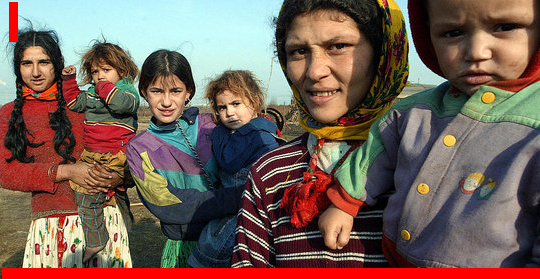UNFAIR JUDGEMENTS
Clearing up the misconceptions
With the recent news saturation coverage of the white, blonde girl found in a Roma camp in Greece, many may be wondering exactly who are the Roma? Are they Gypsies? Are they child stealers and traffickers?
OPENLY JUDGED ~ Respecting the dignity and human rights of the Roma
In today's news climate an entire people can be stigmatized and generalized fueling discrimination and further isolation. Mind you, the Romas have never integrated themselves into the societies where they live.
They are concentrated primarily in Southern Europe (Spain, France, Romania, and Turkey), and in the U.S. and Brazil in the Americas. Often referred to as Gypsies, and also as Monouches, Travellers, Ashkali, Sinti, Romany, Romanies, Romanis, or Roms, they are a nomadic people who migrated from India in the 14th century. They speak some variation of Romano, a language related to the modern Indo-European languages of India. They are the poorest, most unemployed, most poorly educated, most imprisoned, and shortest-lived of ethnic minorities in Europe. Add to that, the most openly discriminated against group. France, has a policy of expelling all Roma who are citizens of other EU countries, despite a European vision of equality and the right to live under human conditions everywhere in the EU.
The Roma are many things, to be sure. There are many truths about their condition, and they have myriad historic disadvantages, and they are often the victims of racially motivated crime against them as individuals. Like any group, they have hard-working components, yet they live in areas of high criminality, but they are not as a group, criminals, or child traffickers or stealers, and it may turn out that even the couple who had the blonde girl is innocent of the rushed presumption by Greek authorities that since the child was not related, she must have been abducted. It is too early to tell. In Ireland, a similar case ended up with the girl being returned to her Roma parents as DNA tests proved their relationship. In the Greek case, DNA has proven she is not related, but they claim that she was adopted with the consent of her parents, and that one does not need to be blood related in order to be family.
The French Romantic dramatist Victor Hugo referred to the Roma and egyptiens in his novel "The Hunchback of Notre Dame," as it was once believed that the Romas had originated in Egypt. One story had them harboring baby Jesus, their exiled status coming as punishment. Romas themselves refer to themselves as Gypsies in the names of many of their organizations, especially in English, because of convenience due to the large use of the term "Gypsy," however, they also consider the term as derogatory precisely because of the negative stereotypes it carries.
Perhaps because of the stigma, Romas choose not to register their ethnicity in official censuses. It is estimated there are more than 12 million Romas, about one million live in the U.S.
TIME Magazine explains the misconceptions about the Romas at:
http://content.time.com/time/video/player/0,32068,2762836785001_2155503,00.html
Photo Credit: Time Report
FOR MORE or to watch the TIME report go to:
www.TheGlobalRepublic.com
